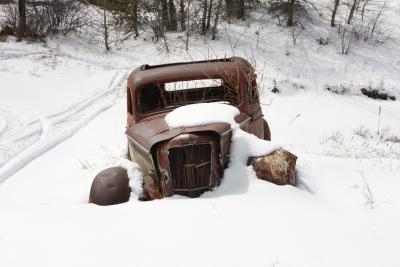
Cars are expensive. Consumers who cannot afford a new car often opt for older, high-mileage vehicles. These vehicles sell for a lower initial price. If not maintained, however, older high-mileage cars can cost so much in repairs that they offer very little long-term savings. On the other hand, a properly maintained high-mileage vehicle can save you money. There is no guarantee that following standard procedures will keep your car out of the mechanic's lot, but diligent maintenance certainly minimizes the risk.
Check and change the oil. Engines with a lot of miles are even more dependent on oil to run smoothly. Your car's owner's manual should specify how often your car needs an oil change. If your car is old and has logged many miles, you should consider changing the oil even more frequently than advised by the manual.
Get the filters and spark plugs changed regularly. The same principles that apply to oil apply equally to your car's filters and plugs. You do not need to change the filters and spark plugs yourself. Many mechanics change these parts without charging hefty fees.
Check your tires weekly. Check for tire pressure and tire wear. Older cars need good, effective tires. Dilapidated tires put more stress on your car's old engine and transmission.
Listen carefully to the engine. As CarInsurance.com notes, "When a car gets 50,000 or 60,000 miles on it, it is not new anymore. You will notice small noises and oddities." Have your car evaluated by a professional whenever you begin to hear a new, disturbing noise. It is better to fix the problem early rather than let the problem worsen.
Drive carefully. Older cars are weaker than newer cars. Try to avoid driving your old car in challenging conditions like snow, steep inclines or off road. The more you stress your old car, the more quickly it will deteriorate.